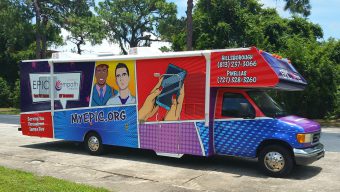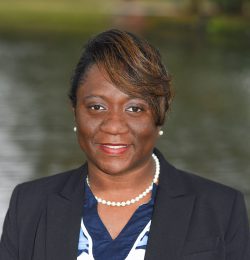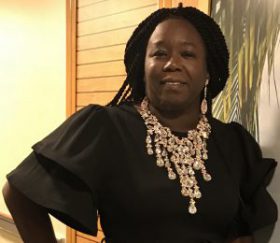 It’s normal to get regular check-ups for our health. But, why not necessarily HIV testing?
It’s normal to get regular check-ups for our health. But, why not necessarily HIV testing?
We know that HIV is still out there. It can happen to males and females, young and old, including those who are having sex or sharing intravenous drug needles. Infections are rising among certain populations. Yet, so many people go without testing and treatment.
The Florida Department of Health in Pinellas County reports that the Centers for Disease Control and Prevention (CDC), “recommends people between the ages of 13 and 64 years get tested for HIV at least once in their life.”
As National HIV Testing Day: Doing it My Way, Testing for HIV approaches on Wednesday, June 27, we urge everyone to get tested. It’s a simple, quick finger prick that can save and change your life. If you find out you are negative, you can work toward remaining HIV-free. If you are diagnosed positive, you can connect to the care and support needed to live a healthy life and help protect others from infection.
Here we speak with EPIC (Empath Partners in Care) Director of Medical and Education Services Bridget Narvaez, RN and Michele Watkins, an EPIC comprehensive risk counselor who has been doing HIV testing and outreach for seven years. The two discuss mindsets around HIV and testing, EPIC’s free, rapid HIV tests and post-counseling and EPIC’s participation in the Pinellas Planning Partnership (PPP) that provides prevention education and testing.

EPIC Director of Medical and Educational Services Bridget Narvaez
1. What do you most want people to know about HIV?
Narvaez: The number one thing everyone needs to know is to remove the stigma with HIV, which can be based on old thoughts or misinformation. A lot of people still have a very negative stigma with HIV. It’s something that affects a lot of individuals and makes it difficult for individuals to get tested or seek care.
The number two thing is it is key for all individuals to get tested and know what their status is. Some people say, “I only had sex one time,” and for some one time is all it takes. For people in high-risk categories, it’s important that they get tested frequently, find out their status and stay negative. We use prevention education to help people stay negative. It’s not just HIV, there are other infections out there. It’s all about understanding sexual health.
People are still very hesitant to get tested these days. Just like getting your blood glucose or cholesterol levels tested, why not get tested for HIV to let you know your status? If by chance you are positive, it’s important to know there are resources like EPIC to help you and provide support.
2. How many people has EPIC tested recently?
Narvaez: We test any individuals ages 13 years and older. In 2017, 3,200 people were tested on-site at our Clearwater, St. Petersburg and Tampa offices and in extended outreach areas around the community.
3. What is the EPIC testing process like?
Watkins: Once we are called to test people, we introduce ourselves. There are two forms to sign and once they are done, I explain the testing to them and that it takes between 15 to 20 minutes. I explain what the test does and that one line is negative and two lines are positive. I use an alcohol pad and say I’m going to prick them but it won’t be so bad. I allow enough blood to come up through the finger, put the blood in a testing tube and allow for the test to perform.

EPIC Comprehensive Risk Counselor Michele Watkins
While the test is performing, I ask them how many sex partners they have had and find out what their risks are. Once I’m done asking the questions, the test is complete. Everyone does this differently. That’s the way I do mine, to try to take their mind off it.
With negative results, I say make sure to use protection, even for oral sex and skin-to-skin contact. I always say abstinence is the best protection. If they have a lot of partners I say to come back in six months for another test. If they have a lot of high-risk factors, such as needle sharing, multiple partners without condoms or sex workers, I say come back in three months. Some people just do it when they have their yearly physical and I say to come back whenever it’s comfortable for them.
For positive results, I sit there for a minute. I say they are not alone and I’m going to get a nurse to come in and talk with them and then get a case manager to come in to go through this process faster. We don’t just send people out after testing, we make sure they have everything they need.
Narvaez: The test itself is quick. The counseling afterwards is important to see where people are at with their knowledge of HIV and if there are any potential risk behaviors going forward. Our team is a great group of individuals who help people understand that we will treat them as human beings and walk hand-in-hand with them through this.
4. Which areas in Florida have high rates of HIV infections?
Narvaez: We know that the Tampa Bay, Orange County and Miami areas are some of the hot spots with HIV. It’s very important for us to be out there in the community.
 5. Where do you bring the EPIC bus for HIV testing and information?
5. Where do you bring the EPIC bus for HIV testing and information?
Watkins: We’ve been going to health fairs. We go to High Point Neighborhood Family Center in Clearwater, Tarpon Springs Shepherd Center, Pinellas Safe Harbor homeless shelter in Clearwater, churches, corner stores and other places. Wherever we see people, we try to stop and test.
Narvaez: Pinellas Planning Partnership (PPP) is a collaborative of community-based HIV/AIDS organizations in Pinellas County, including EPIC, Metro Wellness & Community Centers, AIDS Healthcare Foundation, the Florida Department of Health and other local agencies that assist with providing HIV testing and other services. We all get together as one cohesive unit to provide events for people to come, get prevention education and most importantly get tested.
In honor of National Testing Day, we are holding a testing day on Friday, June 29 at the Walgreens at 3350 Central Ave. in St. Petersburg. Our team has recently participated in other St. Petersburg events, including Pride weekend, a family fun fest and a conference geared toward African-American men who have sex with men.
Know Your Status – Get Free and Fast Testing!
Stop by to get your free, rapid HIV test with EPIC at Walgreens on Friday, June 29 from 3 p.m. to 7 p.m. Click here for more information.
To learn more about EPIC services, visit our website or call us at (727) 328-3260 in Pinellas County or (813) 237-3066 in Hillsborough County.
